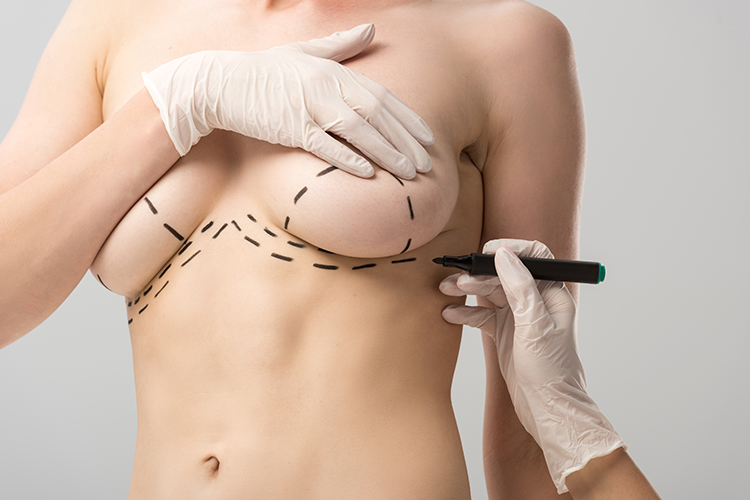Breast Reduction

Breast Reduction
Breast Reduction Surgery
For many women, having big breasts is a fantastic dream; however, for some women it may be the other way around. In women with disproportionate breast enlargement, the extra weight carried can cause many problems such as back and neck pain, bra marks on the shoulders, diaper rash and fungal infections under the breasts, or numbness in the arms.
Breast reduction surgeries are often misunderstood, despite being quite common. If you are not satisfied with your bust size and want to reduce them, first of all, you should remember that you are not alone. Extremely large breasts become a visual problem in daily life and especially when doing sports. Today, many women have a breast appearance compatible with their body with this surgery.
What Does Breast Reduction Surgery Do?
Simply put, a breast reduction surgery is designed to increase a woman's comfort. This is a procedure that makes the breast volume or mass smaller.
Who Are the Eligible Candidates?
Breast reduction surgery is for women with large breasts who want to get rid of the following problems:
- Chronic back, neck and shoulder pain requiring the use of painkillers,
- Irritation and rashes that become chronic under the chest,
- Nerve pain, numbness in the arms
- blocking activities,
- Lack of self-confidence due to large breast sizes,
- Difficulty wearing bras and clothes.
Breast reduction surgery is not recommended in the following situations:
- If you smoke,
- if you have diabetes,
- If you have certain conditions such as heart disease,
- if you are overweight
- If you don't want to have scars on your breasts.
Breast reduction surgeries are suitable for women of all ages. Sometimes, young women also prefer this surgery. However, if your breasts are not fully developed yet, you may need a second surgery later in life. Also, if you are planning to give birth or lose weight in the future, you may need to postpone breast reduction surgery for a while.
What Are the Risks?
Breast reduction surgery carries the risks of all other surgical operations. Postoperative bleeding, infection, and a negative reaction due to anesthesia may occur. Other possible risks of this surgery include:
- The bruise is usually temporary,
- surgery scars,
- Raised scars called keloid or hypertrophic scars,
- Loss of sensation in the nipples and the skin surrounding the chest,
- Difficulty in breastfeeding
- Symmetry or variation in size of the breasts.
Preparation for Breast Reduction Surgery
The plastic and aesthetic surgeon will check your medical history and general health before the surgery. Your doctor will inform you about the breast size and shape after the surgery. He will give a detailed description of the risks and benefits of breast reduction surgery, including possible scarring and loss of sensation. He or she will then examine your breasts, take measurements, and take pictures of your breasts. He will make drawings about the surgery with the skin pen, which does not come off right before the surgery. Before the operation, you should also pay attention to:
- Various laboratory tests can be requested,
- You are asked to have a basic mammogram,
- Before and after the surgery, you will need to stop smoking for a while,
- Avoid using certain medications during surgery to control bleeding. Your doctor will inform you about these drugs,
- Ask your doctor if you will be hospitalized
- Ask a relative to help drive you home after surgery and when you leave the hospital.
Although you can see the results immediately, remember that it will take months for the swelling to completely decrease and the surgical scars to disappear. The results of breast reduction surgeries are usually permanent. However, the shape and size of the breast may change over time depending on factors such as aging and weight gain and loss.
Comments
I have been going to this center for 3 years, the institute is easily accessible and you are always very well received there. The beautician is always smiling and listening to you. We spend a pleasant time there. I recommend this institute with my eyes closed.
Melika Indjova
The whole team is great! Really welcoming and smiling! Everything went very well from arrival to departure.
Basel Druesne
Besides the reasonable price. The welcome and hygiene were above my expectations! 5 months already happy with the result!
Benjamin Loic
I come from Spain and I had my operation with Smilexp'Hair which was perfect. They were able to put me at ease and answer all my questions even after the operation. They followed well. I really recommend Smilexp'Hair has everything it was worth premium quality because it is intervention that affects my face.